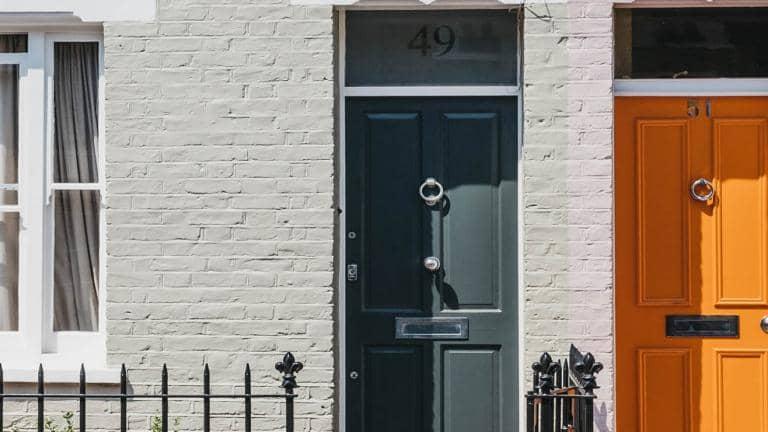
New-build versus period property
Discover the pros and cons
Choosing a new-build or a period property is more than a question of taste. Find out how two recent homebuyers reached their decision.
Ready to start house-hunting? It’s an exciting prospect but, with so many things to consider – from location to cost – it can feel overwhelming. We’ve identified 6 key questions to ask yourself before you start looking.
Before you start searching for a new home, you’ll need to set a realistic budget. This will include how much you can afford for a deposit as well as monthly mortgage repayments and any additional expenses.
As a general rule, lenders will want you to have a deposit that’s at least 5% of a property price. It’s worth remembering that, with a larger deposit, you’ll usually have better mortgage deals available to you. Use our mortgage calculator to get an idea of how much you can borrow based on your personal circumstances. You can explore our mortgages and, if you’re buying your first home, our first-time buyer centre has all the help you’ll need to get started.
Don’t forget to consider the other costs associated with buying a home, too, such as valuation and legal fees, taxes, moving costs and insurance. Remember, too, that if you’re buying a flat or an apartment, you may also have to pay maintenance costs. Read our guide to the real cost of moving for more information.
If you’re struggling to save for a deposit, there are options available and they might help you decide what kind of home to go for.
Shared Ownership means you can buy a share of the property (25%-75% of its value) and rent the rest from a housing association. There are eligibility requirements with both schemes, so make sure you take a look before starting your property search.
Alternatively, if your family can help you financially, you could get a home without paying a deposit. With our Family Springboard Mortgage, your family or helper provides security to your mortgage by opening a Helpful Start account with 10% of the property price. If you make all your mortgage payments on time, their money is returned – with interest – after five years.
Location can be as important as the property you buy, given it can impact everything from your commute to your weekend down-time. It’s worth weighing up what’s important to you right at the start, so you can check out the things that matter, whether that’s crime rates, public transport links or proximity to local amenities.
If getting your children into a particular school is a priority for you, for example, take a look at its catchment area and search homes by the corresponding postcodes. Be aware that catchment areas can expand or shrink according to a school’s popularity, so it’s important to check the latest data.
It’s also a good idea to find out if there are any planned developments (such as new housing or transport extensions) in the area, as this could have an effect on the feel of the neighbourhood and impact house prices in the future.
You may already have an idea of the property style you’re after, but don’t forget to think about the practicalities too.
While period properties have character, they may also require modernisation, so you’ll need to factor in additional costs to pay for any works. If it’s a listed property, some renovations or extensions may be prohibited.
New builds, on the other hand, often come with a property warranty that covers any repair costs in their first few years. By buying a new build, you could also be eligible for the government’s Help to Buy scheme (see above). New builds are also likely to be more energy-efficient than older properties, which could save you money on utility bills. You might also be eligible for a lower mortgage rate with our Barclays Green Home Mortgage. Read our guide to period properties and new builds for more considerations.
It may be easy to decide how many bedrooms you’d like but don’t forget to think about the rest of the living spaces, too, and how your needs may change in the future. If you work from home, you may want an extra room to act as a home office; if you’ve got small children, a self-contained playroom can come in very handy.
It’s also a good idea to think about the layout of the interior. While an open-plan cooking and dining area may sound perfect in theory, would you prefer to be able to shut a messy kitchen behind closed doors? And don’t forget about the outside space. If you love gardening, a good plot should be a part of your property search criteria. If you have a car, consider whether having a garage is a deal-breaker or if you are happy with on-street parking.
Property search websites are a good place to start if you’re looking for a new home. There are also online options for more specific searches, such as uniquepropertybulletin.co.uk, which lists unusual properties ranging from old schools to churches and water towers.
If you want more personalised help in finding your dream property, consider using a property finder or property search agent. These experts can recommend properties to you based on your specific needs, as well as their own knowledge of the local area.

Discover the pros and cons
Choosing a new-build or a period property is more than a question of taste. Find out how two recent homebuyers reached their decision.

Online vs high street
Check the key factors to consider if you’re thinking about using an online agent to sell your home.

Tips to help you plan for moving
Thinking of moving? Read our tips on how to choose a location, weigh up the cost, sort out your mortgage and make plans for moving day and beyond.

Work out the kind of mortgage you could afford
Use our mortgage affordability calculators to work out how much you could borrow and what kind of deposit you need for a mortgage.
Get a quote for buildings and contents insurance, and find out why it’s important to ensure your mortgage is covered if you fall ill or die.

…and make money work for you
Your money – the way you spend it, save it and (try to) look after it can be complicated.

